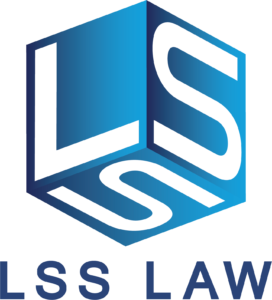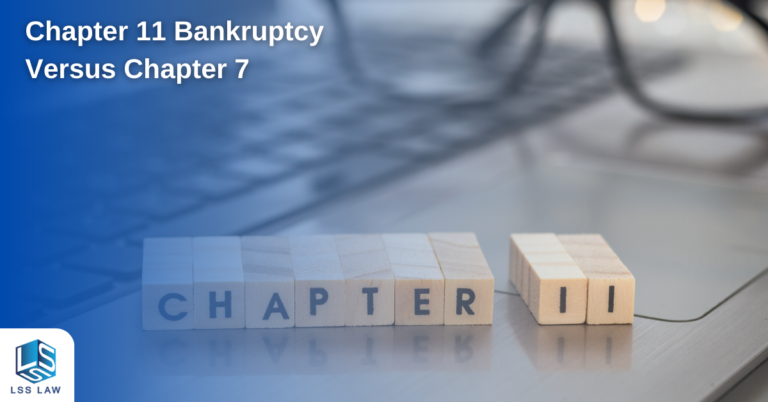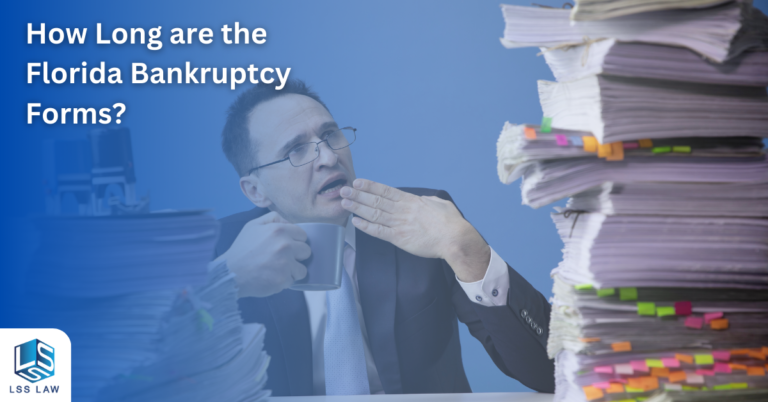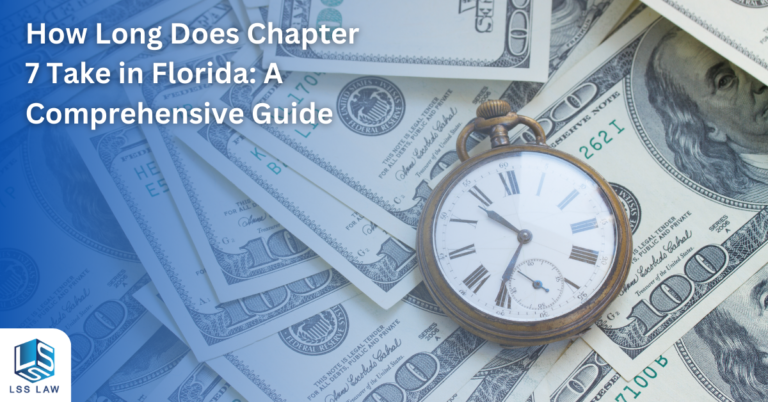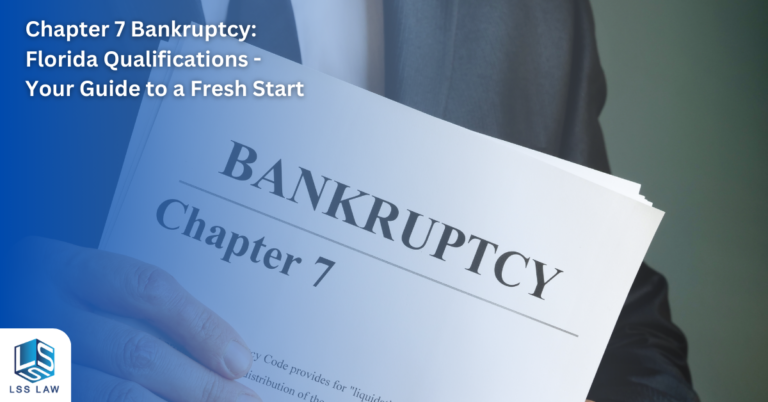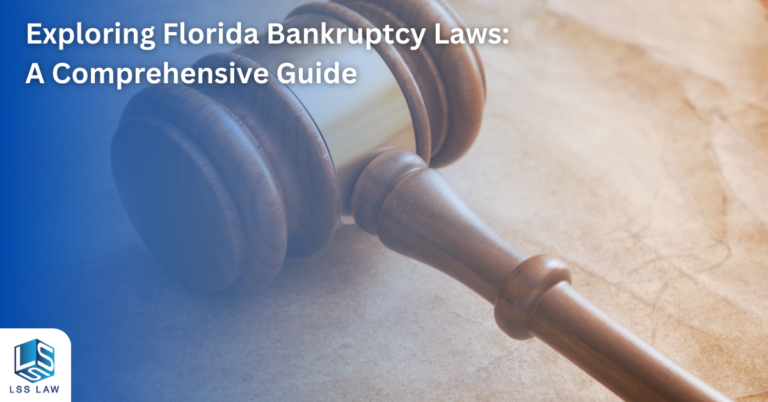Filing for bankruptcy can be a challenging decision, especially when trying to determine which chapter is right for your situation. Two of the most common types of bankruptcy filings for consumers are Chapter 7 and Chapter 11. While both can provide debt relief, there are some key differences between these chapters that you need to understand.
What is Chapter 7 Bankruptcy?
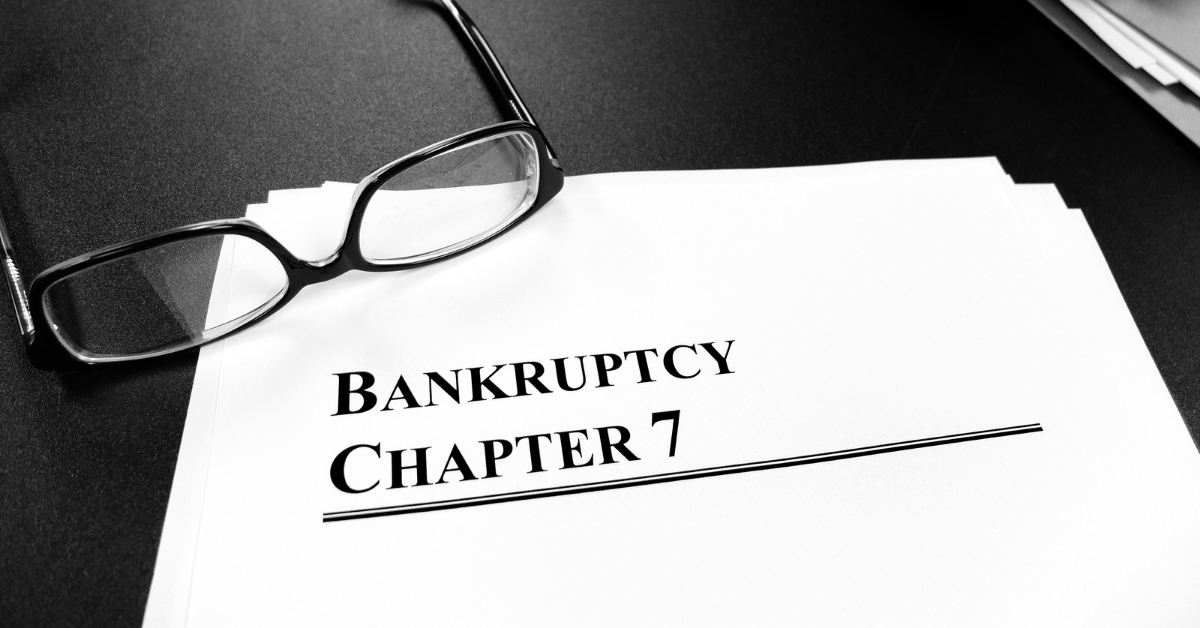
Chapter 7 bankruptcy is sometimes referred to as “liquidation” bankruptcy. When filing Chapter 7, a court-appointed bankruptcy trustee is assigned to your case. The trustee’s role is to oversee the liquidation of any non-exempt assets and distribute the proceeds to creditors.
In most Chapter 7 bankruptcies, filers do not have many assets that can be liquidated. Exempt assets are property and belongings that you are allowed to keep, such as a primary residence up to a certain value, vehicles up to a certain value, retirement accounts, clothing, household goods, and tools of your trade. Any equity you have in non-exempt assets ends up getting sold by the trustee.
The primary benefit of filing Chapter 7 is that it allows you to discharge many common unsecured debts like credit cards, medical bills, personal loans, and certain old utility bills. These debts can be wiped out through the bankruptcy, providing a fresh start.
However, certain debts cannot be discharged in Chapter 7. These include tax debts, child support, alimony, student loans, and debts arising from fraud or intentional harm. You also cannot discharge secured debts like mortgages and car loans through a Chapter 7 bankruptcy. To keep assets secured by these debts, you must continue making the monthly payments according to the loan terms.
What is Chapter 11 Bankruptcy?
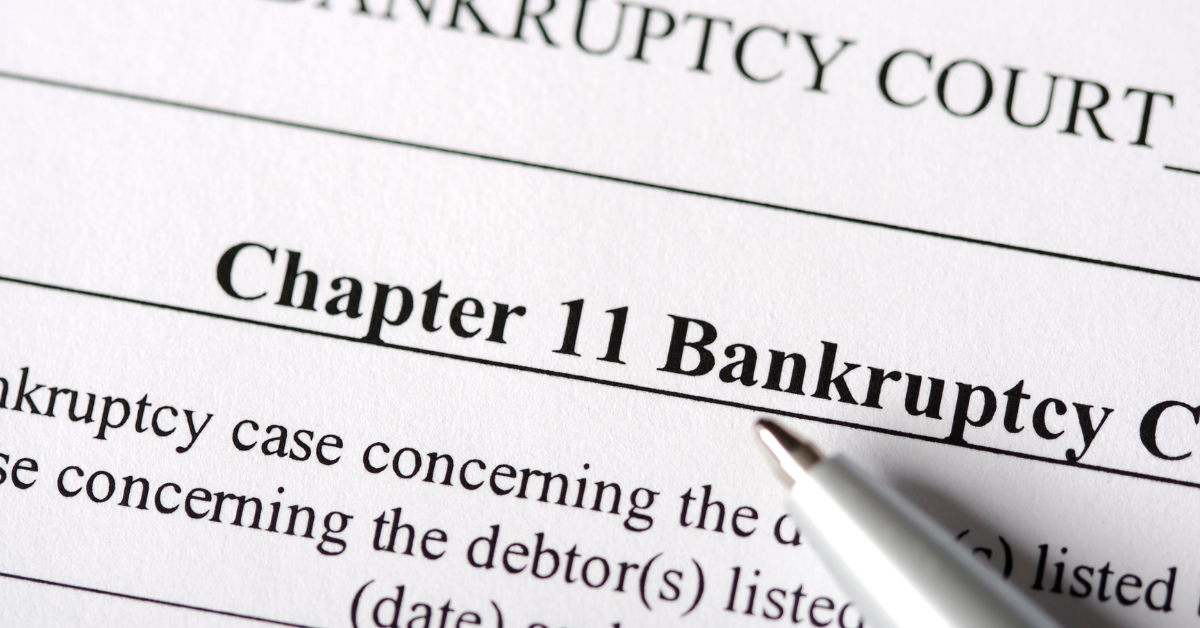
Chapter 11 bankruptcy allows individuals, partnerships, corporations, and other business entities to reorganize their debts while continuing to operate. It is also available to individual consumers, but it is much less common than Chapter 7 or Chapter 13 for non-business filers.
The goal of Chapter 11 is to establish a plan to repay all or a portion of outstanding debts over time through a court-approved repayment plan. As opposed to liquidating assets like in Chapter 7, you get to keep both exempt and non-exempt property while working on catching up on accounts in arrears through the repayment plan.
As the debtor, you propose your repayment plan based on projected disposable income, and creditors can object if they do not like the terms. Negotiation is a big part of the Chapter 11 process to get to a confirmable plan. These plans usually last three to five years.
A major benefit of Chapter 11 is that you can modify the terms of certain secured debts. For example, you may be able to reduce the principal balance of a mortgage, reduce interest rates, extend the payment terms, or otherwise change the loan to make it more affordable. Chapter 11 gives you more flexibility in restructuring secured debts compared to Chapter 7 or Chapter 13.
Key Differences Between Chapter 7 and Chapter 11

There are several key differences between Chapter 7 and Chapter 11 bankruptcy filings:
1. Liquidation vs. Reorganization
The most fundamental difference is that Chapter 7 liquidates your assets to pay creditors, while Chapter 11 allows you to reorganize your debts and keep all assets. Chapter 7 wipes out debt completely through discharge, while the debts are restructured and managed through a repayment plan in Chapter 11.
2. Eligibility
Chapter 7 has no specific eligibility requirements. Anyone who qualifies as a “debtor” under the bankruptcy code can file Chapter 7. Chapter 11 has more restrictive qualifications, as it was designed for businesses. While individuals can file Chapter 11, it requires regular income and reasonable living expenses.
3. Cost
Filing fees for Chapter 7 are $338, while Chapter 11 filing fees start at $1,167 and go up from there. Chapter 11 also involves higher attorney fees, and you have to pay quarterly trustee fees based on your disbursements. This makes Chapter 11 a more expensive process.
4. Credit Impact
Chapter 7 will remain on your credit report for 10 years from filing. Chapter 11 will only show for 7 years. However, a completed Chapter 11 repayment plan looks better to future lenders than a Chapter 7 discharge.
5. Protection of Assets
In Chapter 7, your non-exempt assets are sold by the trustee. Under Chapter 11, you get to keep everything while catching up on payments through the repayment plan.
6. Role of the Trustee
In Chapter 7, the trustee liquidates your assets and has an administrative role. In Chapter 11, the trustee takes a bigger role in the management and administration of your bankruptcy estate and assets.
7. Discharge of Debts
Most unsecured debts are fully discharged in Chapter 7, while they are modified and restructured (not wiped out) in Chapter 11. Any discharge is received at the end of the repayment plan in Chapter 11.
As you can see, Chapters 7 and 11 offer very different processes to deal with debts and assets. Understanding how they work can help you evaluate which bankruptcy solution aligns closest with your financial goals. The best way to decide what is right for your unique situation is to consult with an experienced bankruptcy attorney.
How to Determine if Chapter 11 is Right For You

So when does it make sense to file a Chapter 11 bankruptcy instead of a Chapter 7 or Chapter 13? There are a few key things to consider:
- You have considerable assets or property. Chapter 11 allows you to keep all assets, making it preferable for property owners. You can catch up on secured debts like a house or car through your repayment plan rather than liquidating the assets.
- You have business debts. Chapter 11 was designed for business reorganization and is ideal if you have business debts personally guaranteed. It gives more flexibility for dealing with leases, contracts, inventory, and other business-related debts.
- You have high income or spending. Chapter 11 does not have any specific current monthly income requirements like Chapter 13 does. High-income individuals may only qualify for Chapter 11.
- You need to modify secured debts. The ability to change mortgage, car loans, and other secured debt terms makes Chapter 11 helpful when those debts are unaffordable.
- You have routine income. Chapter 11 plans are funded through regular future earnings. Having stable income makes it more likely creditors will support your repayment plan.
- You need breathing room from collection. The automatic stay stops collections immediately upon filing for Chapter 11 bankruptcy, providing temporary relief.
- You want to pay back debts over time. Chapter 11 gives you 3-5 years to catch up on accounts through a structured repayment plan. This can preserve relationships with creditors.
Every financial situation is different, so connect with an experienced bankruptcy lawyer to receive tailored guidance regarding Chapter 7 vs Chapter 11. But in general, Chapter 11 bankruptcy makes the most sense for protecting valuable property, restructuring secured debts, and coming up with an affordable repayment plan.
Frequently Asked Questions
What are the basic differences between Chapters 7, 11, and 13 bankruptcies?
The main differences between Chapter 7, 11, and 13 are:
- Chapter 7 liquidates non-exempt assets to pay unsecured creditors. Remaining debts are discharged.
- Chapter 11 allows individuals and businesses to restructure debts into a court-approved repayment plan. Assets are retained.
- Chapter 13 is a reorganization option for individuals with regular income to catch up on debts through a 3-5 year repayment plan.
Chapters 11 and 13 allow you to keep assets while paying back debts over time. Chapter 7 wipes debts out through liquidation and discharge.
Is Chapter 11 bankruptcy better?
Chapter 11 is not necessarily better across the board compared to Chapter 7 or 13. It offers more flexibility in restructuring debts and keeping assets protected. But it also costs more in fees and legal expenses.
Chapter 11 makes the most sense for:
- Business owners with business debts
- Individuals with high assets they want to retain
- Anyone needing to restructure secured debts like mortgages
- People who need temporary relief from collections
For those with minimal assets and income, Chapter 7 may provide the cleanest slate. Chapter 13 can help catch up on debts over time on a budget. Speak with a bankruptcy attorney to determine if Chapter 11 is your best option.
What does Chapter 11 bankruptcy allow?
Some key things a Chapter 11 bankruptcy allows you to do:
- Restructure secured debts like car loans and mortgages
- Keep all exempt and non-exempt assets
- Operate business and manage business debts
- Stop wage garnishments and collection calls
- Develop affordable 3-5 year debt repayment plan
- Discharge some unsecured debts at end of plan
- Maintain control of assets instead of liquidation
Chapter 11 gives more flexibility in developing a customized repayment plan while protecting property. It provides time to catch up on payments to creditors and modify loan terms.
What is the difference between Chapter 11 and 13 bankruptcy?
The main differences between Chapter 11 and Chapter 13 bankruptcy are:
- Chapter 13 is only for individuals, Chapter 11 can be filed by businesses
- Chapter 13 has income limits, Chapter 11 does not
- Chapter 13 plan is 3-5 years, Chapter 11 may be longer
- Chapter 13 trustee disburses payments, Chapter 11 debtor remits payments
- Chapter 13 has lower fees and costs compared to Chapter 11
- Chapter 11 allows modification of more secured debt terms
Both chapters aim to reorganize and repay debts through a court-approved plan. But Chapter 11 provides more flexibility for businesses and individuals with higher incomes and assets.
Considering Bankruptcy? Connect with the Experienced Team at LSS Law

If you are overwhelmed by debt and need help weighing your bankruptcy options, the dedicated attorneys at LSS Law are ready to guide you. We have extensive experience with Chapters 7, 11, and 13 bankruptcy filings for both businesses and consumers. Over the past 25+ years, we have successfully represented thousands of clients across Florida.
Our legal team takes the time to understand your unique financial circumstances. We answer all your questions, explain the different chapters of bankruptcy, and help determine if bankruptcy is the most appropriate solution. If you decide to move forward with a bankruptcy filing, we use our expertise to ensure the process goes as smoothly as possible.
At LSS Law, we provide the personalized attention and compassionate counsel that you deserve during this challenging time. Contact us online or call (954) 932-5377 to schedule an initial consultation at our office in Fort Lauderdale. We also offer virtual consultations for your convenience. Let us help you get a fresh financial start!
